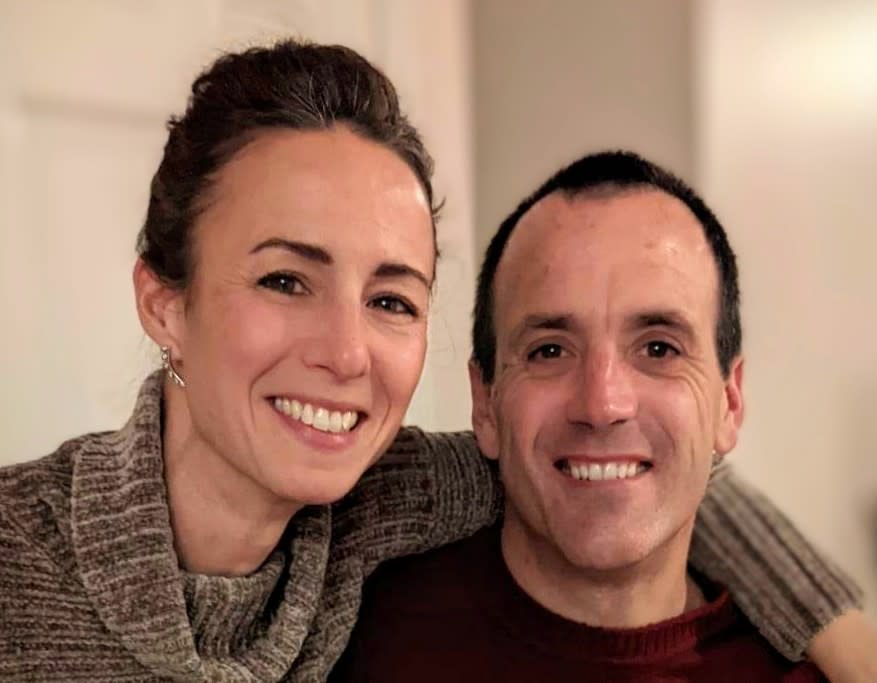By all accounts, Andrea and her husband, Bill, are set up for a comfortable retirement. They have maxed out retirement accounts for decades, lived well below their means, and never carried consumer debt, aside from their mortgage. Andrea, 54, is "semi-retired" already, and teaches a few Zumba classes a week. She and her husband look forward to the time when he is officially retired from his job in advertising and they can travel more together and hike around their home in Gardnerville, Nevada.
Still, despite being in a better position for retirement than most Americans, Andrea—who asked that her last name be withheld so she could freely discuss her finances—can't help but worry, thanks to one inescapable financial pitfall of life in the U.S.: health care costs. Even though she and her husband have lived a blessed life and been able to save a significant nest egg, she says, it's a dark cloud hovering over their seemingly bright future.
"Health care is the biggest, scariest—scary isn't even the word—it’s terrifying," she tells Fortune. "It’s terrifying to think that tomorrow you could get sick, and being sick could ruin you, destroy you, take everything from you that you’ve worked your entire adult life to have."
Andrea is far from alone. Around 45% of Americans aged 50 to 64 are worried they won't be able to afford health care when they retire, according to a 2020 study published by JAMA Network Open.
And while Gen X as a whole is ill-prepared for retirement—with the typical household having around $40,000 in retirement savings, according to arecent study—even those who have amassed at least $1 million are also also worried that one major health issue could bankrupt them. In hundreds of emails Fortune received from Gen Xers about their retirement readiness, it was a recurring pain point.
"I have a lot of clients who could retire if it weren't for health care costs," says Liz Windisch, a Colorado-based certified financial planner. "Or they’re scared. What if they get cancer at 60? No one wants to be without employer coverage."
Health care costs are pushing Fred, an electrical engineer in Massachusetts, to consider a move abroad with his wife in a few years. Fred, who asked that his last name be withheld to protect his privacy, was born in France and moved to the U.S. in his twenties; now 45, he and his wife have been able to save and invest steadily over their careers, and plan to step back from full-time work when they're 55.
While he loves the life he's built in the U.S. and has been able to save a sum into the seven figures, the cost of health insurance makes staying in the U.S. at that time impossible to do, at least until the couple reaches Medicare age.
"I will have a net worth much higher than if I was in France. But there’s no safety net," says Fred. "If we go to France, we’ll be covered by the French health plan... That will give us some flexibility until we reach 65, when Social Security and the French pension will come."
Windisch points to a few factors that have hampered Gen X's retirement readiness. They're the guinea pigs of the 401(k), self-funded retirement experiment, unable to rely on pensions—in which employers funded much more of their employees' retirement—in the same way as the baby boomers before them. They also have higher student loan debt than prior generations, and the costs of caring for elderly family members as well as their own children—and possibly their children's education—are much higher than for previous generations. (And following generations will pay even more.)
Plus, as Windisch points out, some baby boomers were able to retire at, say, age 60, and their employers would still provide health care benefits before they were able to qualify for Medicare at 65. That's basically an unheard-of perk for Gen X and younger Americans.
"I don't know anybody who has that now," Windisch says. "They’re just cutting, cutting, cutting employee benefits."
Now, those who might be able to retire early or want to try their hand at freelancing or consulting must take on often-exorbitant health care costs. Andrea and her husband, for example, currently buy insurance from their state marketplace and have an annual deductible of $16,000, plus monthly premiums and other costs.
There's little an individual can do to combat rising health care costs, aside from sticking with an employer plan and trying to stay as healthy as they can. Windisch says one strategy that might work for some is to fund a health savings account, or HSA, while still employed and healthy, and then use the funds to pay for premiums and other costs in retirement. But it's obviously not a solution to spiraling health care costs, and not everyone will be able to stash the additional funds away for years or decades later.
And as Michelle Milkowski, a 43-year-old in Renton, Wash., points out, though she has tried to stay healthy and save diligently, she's highly aware of how her health can change in an instant through no fault of her own.
“Growing up you are taught, be responsible, get a job, work hard, and then you’ll have your nest egg and everything will be fine,” says Milkowski, who works in sales at a health insurance company. “But I found out people get disabled, people have strokes… If a parent has to step out of the workforce for any reason, good luck to that family.”
It seems unfair, Andrea says, that after working, planning, and saving for decades, something as fundamental as being able to afford health insurance and health care costs seemingly comes down to guesswork. Did we save enough? Will we get sick? What will insurance cover?
"It’s one of the absolute most disgusting things about living in this country," she says. "Getting sick should not destroy you financially."
This story was originally featured on Fortune.com
